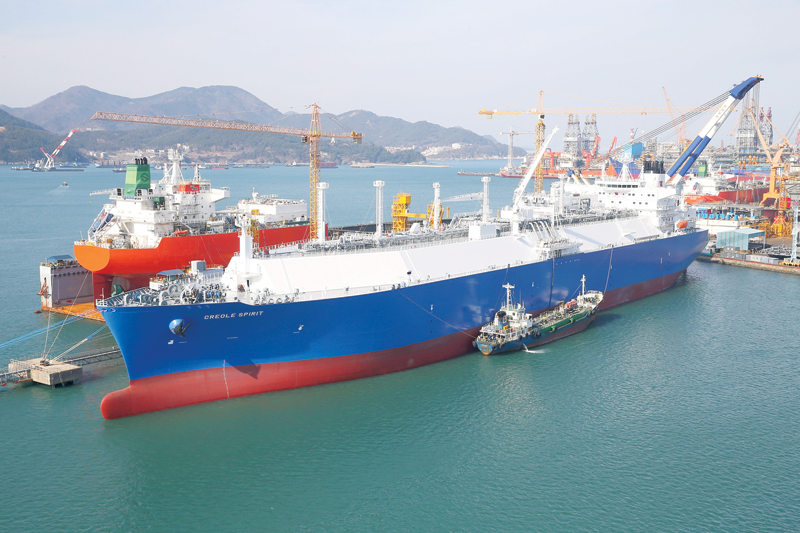

Jonathan Saul and Nina Chestney -
More ports around the world are banning ships from using a fuel cleaning system that pumps waste water into the sea, one of the cheapest options for meeting new environmental shipping rules.
The growing number of destinations imposing stricter regulations than those set by the International Maritime Organization (IMO) are expected to be a costly headache for cruise and shipping firms as they face tough market conditions and slowing world trade. They might have to pay for new equipment and extra types of fuel and adjust their routes.
Singapore, China and Fujairah in the United Arab Emirates have already banned the use of the cleaning systems, called open loop scrubbers, from the start of next year when the new IMO rules come into force.
Individual ports in Finland, Lithuania, Ireland and Russia, have all banned or restricted such equipment. One British port has occasionally imposed restrictions.
Norway is also working on open loop scrubber bans around its world heritage fjords, an official with the climate and environment ministry said. A ban on all types of scrubbers is also proposed, the official added.
The IMO rules will prohibit ships from using fuels with sulphur content above 0.5 per cent, unless they are equipped with exhaust gas cleaning systems. The open loop scrubbers wash out the sulphur and some industry experts believe they are the cheapest way to meet the new global rules.
Companies that invested in open loop scrubbers will be unable to use them while sailing through those port waters. They also fear the IMO rules could change again and ban open loop scrubbers altogether.
The world’s top cruise operator Carnival Corporation has invested over $500 million to deploy the devices.
Carnival’s Mike Kaczmarek, senior vice president for marine technology and refit with oversight of the group’s scrubbers program, said the port moves were “very troubling”. “The more ports that participate in this, the greater the (economic) impact,” he said.
“A lot of people out there... in good faith have made significant investments.”
Ships with open loop scrubbers docking or sailing through those ports would need to store waste in tanks until it could be discharged elsewhere or avoid the ports.
The other option is to use a scrubber with a “closed loop”, which stores the waste until it can be treated on land. There are also hybrid scrubbers with a loop that can be open or closed.
Ship owners could also choose another energy source such as low sulphur fuel or liquefied natural gas (LNG). Some experts say there will be enough low sulphur fuel available to avoid fitting scrubbers.
Data from Norwegian risk management and certification company DNV GL shows there will be a total of 2,693 ships running with scrubbers by the end of 2019 — based on current orders — and over 80 per cent of them will be open loop devices, compared with 15 per cent using hybrid scrubbers and 2 per cent opting for closed loop scrubbers.
Initial research to date into the environmental impact of open loop scrubbers has produced a range of results. The ports and authorities that have banned them have acted in anticipation of studies that conclusively show the discharge is harmful, environmental groups say.
International regulation often lags local action and the IMO rules were agreed in 2016 after years of tense discussions.
An official with Sweden’s Gothenburg port said it recommended shipowners in their waters not to use open loop scrubbers as a precautionary principle to “avoid discharges of scrubber wash water in coastal waters and port areas”.
Businesses are waiting to see if the IMO rules will change. “What is terrible for business is uncertainty in regulation and changes which are not broadcast well in advance,” said Hamish Norton, president of dry bulk shipping group Star Bulk Carriers , among the biggest investors in scrubbers. Jurisdictions that have not imposed restrictions are also watching closely.
The IMO encouraged member states in February to research the impact of scrubbers on the environment. An IMO spokeswoman said it was up to countries to make any proposal to tighten scrubber regulation, which would need consensus approval by its 174 member states. — Reuters
Oman Observer is now on the WhatsApp channel. Click here



